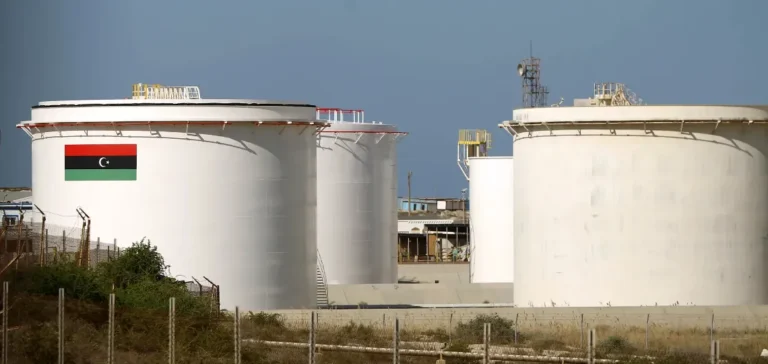La Libye ambitionne de porter sa production de pétrole brut à 1,6 million de barils par jour d’ici la fin de l’année 2026. Selon la National Oil Corporation (NOC), la production actuelle atteint environ 1,38 million de barils par jour, un niveau encore inférieur à celui d’avant la crise politique déclenchée en 2011.
Jusqu’à 4 milliards $ engagés pour relancer le secteur
Ce projet s’inscrit dans une stratégie de relance du secteur pétrolier, avec des investissements estimés entre 3 et 4 milliards $ destinés à moderniser les infrastructures, restaurer les capacités de production existantes et optimiser certains champs en exploitation.
La NOC mène actuellement des négociations avec plusieurs compagnies pétrolières internationales, dont ExxonMobil Corporation et Chevron Corporation, pour développer de nouveaux blocs onshore et offshore. Ces discussions pourraient permettre d’augmenter la capacité d’extraction du pays dans un cadre de coopération technique et financière plus structuré.
Premier appel d’offres pétrolier lancé depuis 2008
La Libye a lancé son premier appel d’offres pétrolier en 17 ans, un signal d’ouverture aux investissements étrangers dans l’exploration et la production. Le processus vise à attirer des opérateurs sur des blocs encore inexplorés, dans un contexte où la NOC cherche à sécuriser de nouveaux flux de capitaux pour soutenir sa stratégie de croissance.
Les hydrocarbures restent la principale source de revenus du pays. Selon les données officielles disponibles, ils représentent près de 90 % des recettes publiques et 95 % de la valeur des exportations. La Banque centrale de Libye a confirmé en 2025 que les revenus pétroliers constituent encore l’ossature financière du pays.
Une stratégie dépendante de la stabilité intérieure
D’après l’Energy Information Administration (EIA) des États-Unis, la Libye détient environ 48 milliards de barils de réserves prouvées, soit le plus grand volume du continent africain. Toutefois, la concrétisation de cette stratégie dépend fortement de la situation sécuritaire et politique, toujours marquée par la division entre deux gouvernements rivaux et la présence d’acteurs armés autour de sites pétroliers.
Garantir un environnement réglementaire prévisible et la sécurité des installations reste une condition essentielle pour convaincre les partenaires étrangers d’engager des capitaux dans un secteur soumis à de fréquentes interruptions de production.






















